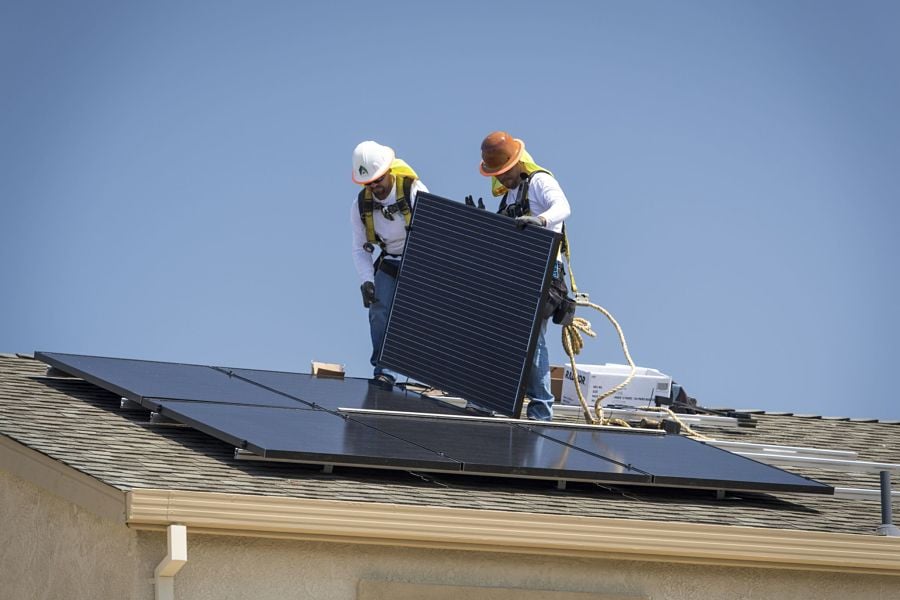Investments in solar energy have been shining brightly this year, and it's not just the summer heat wave that's pushing these stocks and funds to double- and triple-digit gains.
The 56.6% surge from the start of the year in the $390 million
Invesco Solar ETF (TAN) is seen as a result of the 30% tax credit for solar panels.
The tax credit, which was established by the Energy Policy Act of 2005, starts heading lower after this year; the incentive will be cut to 26% in 2020 and will taper down to 10% over the next few years.
The tax credit is one of the two main drivers of the solar panel boom, said Angelo Zino, senior equity analyst at CFRA.
"The tax incentives are both a good and bad thing," he said. "The incentives promote buyers of solar panels, but you want the manufacturers to be able to sell these panels without the need for incentives, and our view is that the industry still needs incentives."
But even as he views the incentives as crutches assisting the sales of solar panels, Mr. Zino believes the gradually declining tax incentives are working as planned.
"As you see a step down in incentives, you'll see a rush to buy the panels each year," he said. "We don't think it's a one-year thing, because consumers will continue to rush to buy ahead of the next incentive reduction."
David Demming, president of Demming Financial Services, said the 30% tax incentive was a major factor in his decision to spend $40,000 on solar panels for his advisory firm's building expansion.
"We've outgrown our space, so we're building an adjacent stand-alone building, and the solar panels will replace the heating and cooling in this building and the adjacent building," Mr. Demming said. "We're recouping the cost of the solar panels in two ways, with the tax credits and increasing savings going forward. It's a win-win as long as you can afford the expense upfront, and we can."
That mindset is helping to
drive up the stock prices of the leading solar panel companies.
SunPower (SPWR), which CFRA sees as a "strong buy," has seen its share price climb 146% so far this year. SunPower is the market-share leader in California, the nation's largest market for solar panels.
First Solar (FSLR), which is the dominant provider of solar panels in the United States, has seen its shares gain 58% since the start of the year.
The global market-share leader in solar panels is
China-based JinkoSolar (JKS), which has seen its shares gain 18.3% this year.
Mr. Zino said the gradual decline in prices for solar panels is another factor in the surge in stock prices.
At the residential level, a typical 10-kilowatt system costs between $25,000 and $30,000 before the 30% tax credit. A decade ago ago, a similar residential system cost nearly three times as much, without the tax credit.
Large-scale, utility-type solar panel projects, which still represent 70% of the market, cost about a third of the residential rate.
In addition to the annual boost from expiring tax incentives, the solar panel market is getting pockets of support from places like California, where all new homes will be required to have solar panels starting next year.
Globally, China represents the largest demand for solar panels; it's expected to account for up to 40% of installations this year, followed by the U.S. and Europe, each of which are expected to make up about 15% of installations this year.
The tax incentive model that is currently fueling sales in the U.S. has already proven effective in Europe, where incentives drove the continent to represent 85% of global solar panel installations in 2011.







